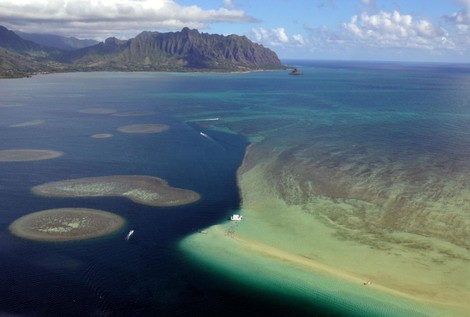Your podcast discovery platform
Curious minds select the most fascinating podcasts from around the world. Discover hand-piqd audio recommendations on your favorite topics.

piqer for: Global finds Doing Good
After ten years working in television news in Washington, DC, Geri quit the business to start a family and in 1997 founded GoodNewsNetwork.org, which quickly became the #1 site on Google for "good news". For more than 20 years, GNN.org has delivered positive news and inspiring stories from around the world as an antidote to the barrage of negativity in mainstream media. Featured on CBS News, BBC, Rolling Stone magazine, and NPR's All Things Considered, Geri was dubbed “The Good News Guru” by the Washington Post. From Health news to Heroes, World news to Animal rescues—and our new ‘Good Talks’ page, which aggregates the best motivational podcasts, GNN provides the ultimate grab bag of GOOD, with its daily dose of optimism and hope.
Sea Urchins Save Coral Reefs That Man Accidentally Almost Strangled
Back in the 1970s, a scientist introduced a non-native algae species into the delicate ecosystem of Hawaii’s Kāne’ohe Bay. He thought the algae would be good to boost the productivity of aquaculture businesses in the area. But the algae proved to be far too productive, and the rampant blooms soon spread invasively and smothered the beautiful coral beds at the bottom of the bay.
For years, organized teams of divers would occasionally swim down to cut up the invasive algae to free the coral reefs from the choking undersea plant, but the process was slow, tiring, and expensive. Now, however, a team of researchers have found a way to step back and let nature take care of things herself.
They plopped down a phalanx of native sea urchins, “grazers” that can munch through several times their body weight each day. They slowly chow their way across the surface of the reef, clearing the remaining algae and re-exposing the coral beneath.
“We use them like goats,” explains Brian Nielson, the lead author of the new study and an aquatic biologist with the Hawaii Department of Land and Natural Resources in Honolulu.
The urchins did their jobs like champs.
After placing 100,000 of the urchins on the reefs over the course of the last two years, the invasive algae mats were reduced by 85%.
Read about the brilliant success story at Nat Geo ...
Stay up to date – with a newsletter from your channel on Doing Good.
